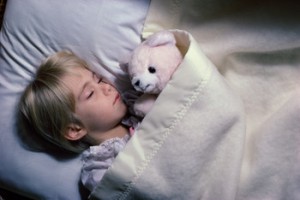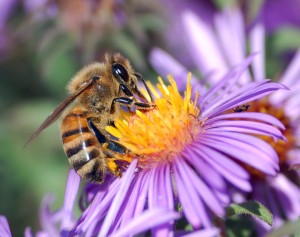
Sleeping seems to enhance memory moreso for kids than adults. In a study children were able to turn implicit knowledge in to explicit knowledge at a higher rate than adults after 10-12 hours of sleep.
Popular Science offers this blurb on a study from Nature Neuroscience:
As a child, you sleep more deeply than an adult, and experience three times more slow-wave sleep and higher electrical activity in the brain during that sleep. This may help turn the large amount of information you accumulate during the day into knowledge you can recall intentionally.
The study, published in Nature Neuroscience this week, looked at 35 children between 8 and 11 years old, as well as 37 adults between 18 and 35. They were each asked to quickly press a sequence of buttons after they lit up. Half of them performed the activity before sleep, and half after. They were then asked to recall the sequence of the eight lights 10 to 12 hours later.
After sleeping, almost all of the children turned the implicit knowledge into explicitly and could remember the sequence they had pressed perfectly, while adults experienced smaller gains. Both groups remembered the sequence better after sleep than those who were asked to recall it right after their training.
